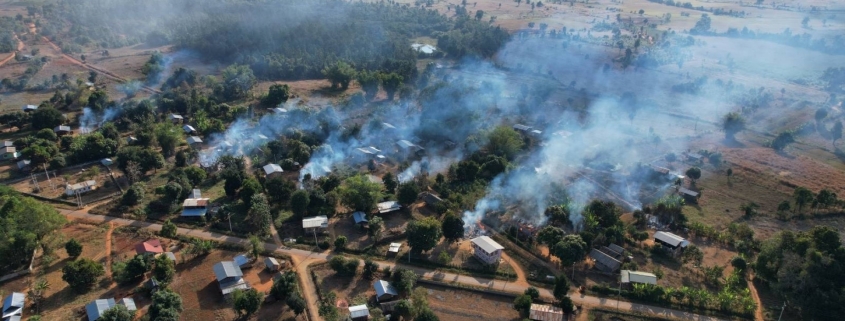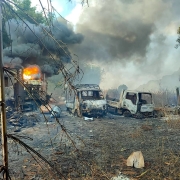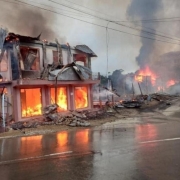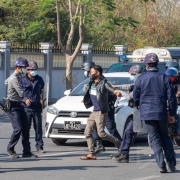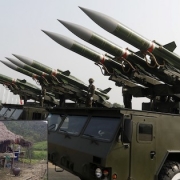Army attacks on two Loikaw villages leave at least 20 houses destroyed by fire
Karenni resistance forces said that junta troops deliberately set the houses on fire after shelling the villages
Regime forces destroyed at least 20 houses in two villages in Karenni (Kayah) State’s Loikaw Township on Friday, according to the anti-regime Karenni Nationalities Defense Force (KNDF).
The group accused the military of firing heavy weapons into the villages of Daw Saw Wea and Kunnar from noon until 6pm on Friday and then deliberately setting a number of houses on fire.
In a statement released on Friday, the KNDF called the attacks “one-sided”.
Earlier in the week, a combined force of KNDF and Karenni Army (KA) troops clashed with junta soldiers near the two villages, which lie about 1km apart.
Reh, a resident of Kunnar who fled after the fighting started last Monday, confirmed that he saw smoke rising from the village on Friday afternoon.
“After firing heavy weapons, they came to torch houses in the village for no reason. There are only a few people still there,” he told Myanmar Now on Sunday morning.
He confirmed that at least one house in Kunnar had been set on fire, while 13 houses and seven tractors had been burned in Daw Saw Wea. He said he didn’t know about the other houses that had reportedly been destroyed.
“Most of the houses also had barns attached to them, so that means the rice inside of them is gone now, too. But we can’t put out the fires, because there are soldiers stationed there,” he added.
Last week, residents of around a dozen villages in Kayah State’s Loikaw and Demoso townships were forced to flee their homes following clashes between the military and local resistance forces.
The state was one of the first parts of the country to see the emergence of an armed resistance movement in the wake of the February 1 coup.
The Karenni Civil Society Network reported on Friday that more than 150,000 civilians have been displaced in predominantly Karenni areas of Kayah State and southern Shan State’s Pekhon Township since the conflict began.

